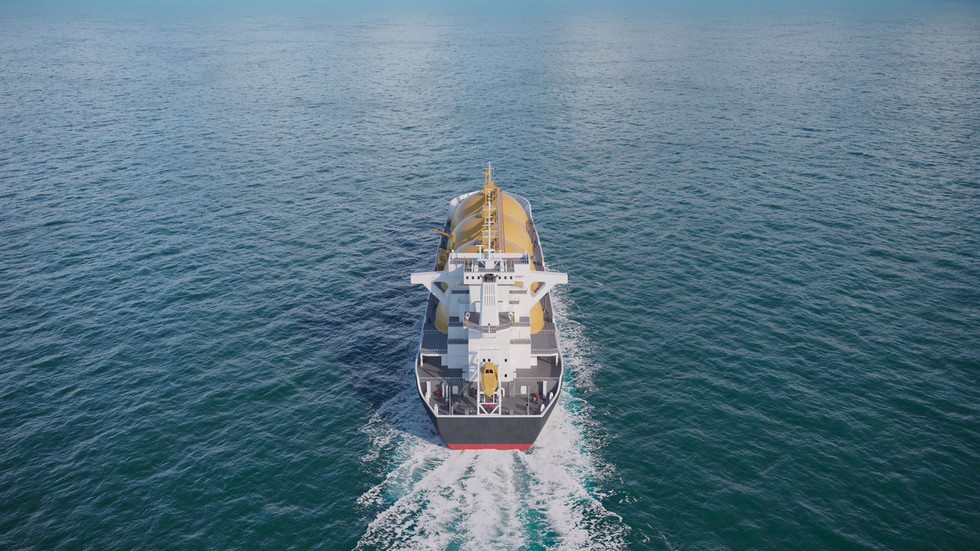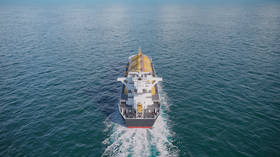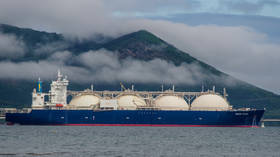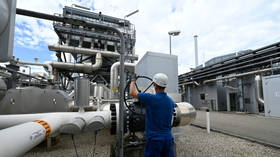
The EU’s dependency on liquefied natural gas has soared due to the loss of Russian pipeline gas
© Getty Images / alvarez The EU has substantially increased its reliance on liquefied natural gas (LNG) imports due to the bloc’s decision to stop buying pipeline gas from Russia, the CEO of Austrian energy company OMV has said. Alfred Stern made the remarks on Friday in an interview with Austrian daily Der Standard, on the sidelines of the World Economic Forum in Davos, Switzerland. “For the first time in over 60 years, we no longer have any Russian gas contracts; alternative gas supply sources have become important… Europe has become much more dependent on LNG supplies,” he said. Stern noted that with 80% of the world’s energy currently derived from fossil fuels, replacing this dependency overnight is “impossible,” and transitioning away from it requires substantial innovation and investment.
In the first half of 2024, Russia was the second biggest supplier of LNG to the European Union after the US, according to data compiled by the Institute of Energy Economics and Financial Analysis. Imports of Russian LNG by EU member states are now at an all-time high. During the first 15 days of this year, they purchased 837,300 metric tons of the fuel, according to data from Kpler and a recent report by Politico. When asked about the potential impact of US President Donald Trump’s expected oil and gas production boost, the OMV chief executive remarked that it could prove to be “beneficial” for the EU. Stern argued that lifting restrictions on LNG liquefaction terminals in the US could lead to greater fuel availability in the long term, offering opportunities for the European energy market.
Read more Following the escalation of the Ukraine conflict in 2022 and the sabotage of the Nord Stream pipelines, the EU took measures to reduce its reliance on Russian fossil fuels. Most members voluntarily stopped importing Russian pipeline gas, but several continue to buy Russian LNG, which has only been partially targeted by sanctions. In June, the EU targeted Russian LNG for the first time, banning re-loading operations, ship-to-ship transfers, and ship-to-shore transfers with the purpose of re-exporting to third countries via the EU. The sanctions have a nine-month transition period. Stern warned that abandoning Russian gas was impossible for Austria, and would have dire consequences for its economy and energy security. Austria until recently got two thirds of its gas from Russia via Ukraine, and OMV had a long-term supply contract with Moscow until 2040. READ MORE: EU faces up to €1 trillion loss over cutting Russian gas – Moscow sovereign wealth fund However, on January 1 Kiev halted Russian natural gas transit through its territory to the EU, effectively cutting off the flow to countries including Austria, Italy, and Slovakia. Ukraine has refused to extend the deal. The loss of Russian gas could cost the EU over €1 trillion in the long-run, according to Kirill Dmitriev, chief executive of the Russian Direct Investment Fund.





